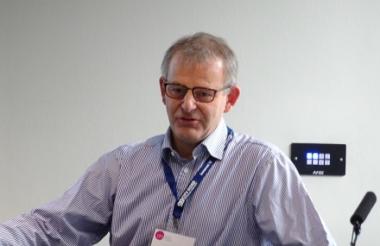Charities should have a positive approach to risk in order to “push boundaries and progress”, an expert has said to a room of sector professionals.
Nigel Kippax, managing director of consultancy the Trustee Fellowship, said to delegates at the CFG Risk and Sustainability Conference 2017 yesterday that if charities were too risk averse, they were unlikely to thrive.
Kippax said a balance between “creativity and control” is needed for charities to thrive, and said the Charity Commission’s guidance on risk management was focused on “getting rid of” risk.
He quoted the Commission’s four basic strategies for managing risk:
- Transfer
- Avoid
- Mitigate
- Accept (insurance)
In contrast, Kippax quoted an interview with Sir Terence Conran, who said that British industries had been held back by too many chief financial officers being promoted to chief executive.
Kippax said: “Professionals in finance and law are set up to ensure compliance, but in order to progress British industry needs that balance of control and creativity.
“And if you have the two most powerful people in your organisation with a mind-set focused on control, you lack the creativity and you therefore tend to manage the status quo.
“What is good for British industry is in my view exactly the same for charities. Unless you’ve got that balance between control and creativity, you are never going to push the boundaries and progress.”
He added: “Can you think of any organisation that has thrived by playing it safe?”
Kippax did say, however, that a cautious approach was appropriate when dealing with issues such as fraud, safeguarding and cash flow.
‘Carve out the budget for innovation’
At a separate discussion at the conference, Kevin Waudby, co-founder at consultancy Good Innovation, said some charities were being held back by a lack of investment in innovation.
He said: “Bar none, the thing that stops organisations innovating well is not having the time to do it well.
“If you don’t create the space for innovation to happen, it won’t. Carve out the budget.”
Waudby said the time and money allocated to innovation needed to allow for some failure as to assess whether a suggested innovation is worth it. “Not every risk is worth taking,” he said.
He also said there are three main categories of innovation: product improvement, product development and transformational change.









